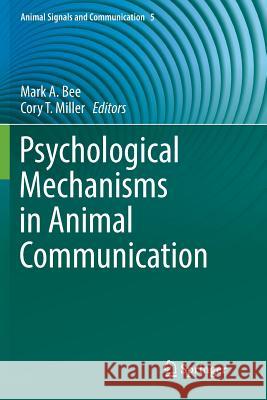Psychological Mechanisms in Animal Communication » książka
topmenu
Psychological Mechanisms in Animal Communication
ISBN-13: 9783319839943 / Angielski / Miękka / 2018 / 320 str.
Kategorie:
Kategorie BISAC:
Wydawca:
Springer
Seria wydawnicza:
Język:
Angielski
ISBN-13:
9783319839943
Rok wydania:
2018
Wydanie:
Softcover Repri
Ilość stron:
320
Waga:
0.46 kg
Wymiary:
23.39 x 15.6 x 1.75
Oprawa:
Miękka
Wolumenów:
01
Dodatkowe informacje:
Wydanie ilustrowane











